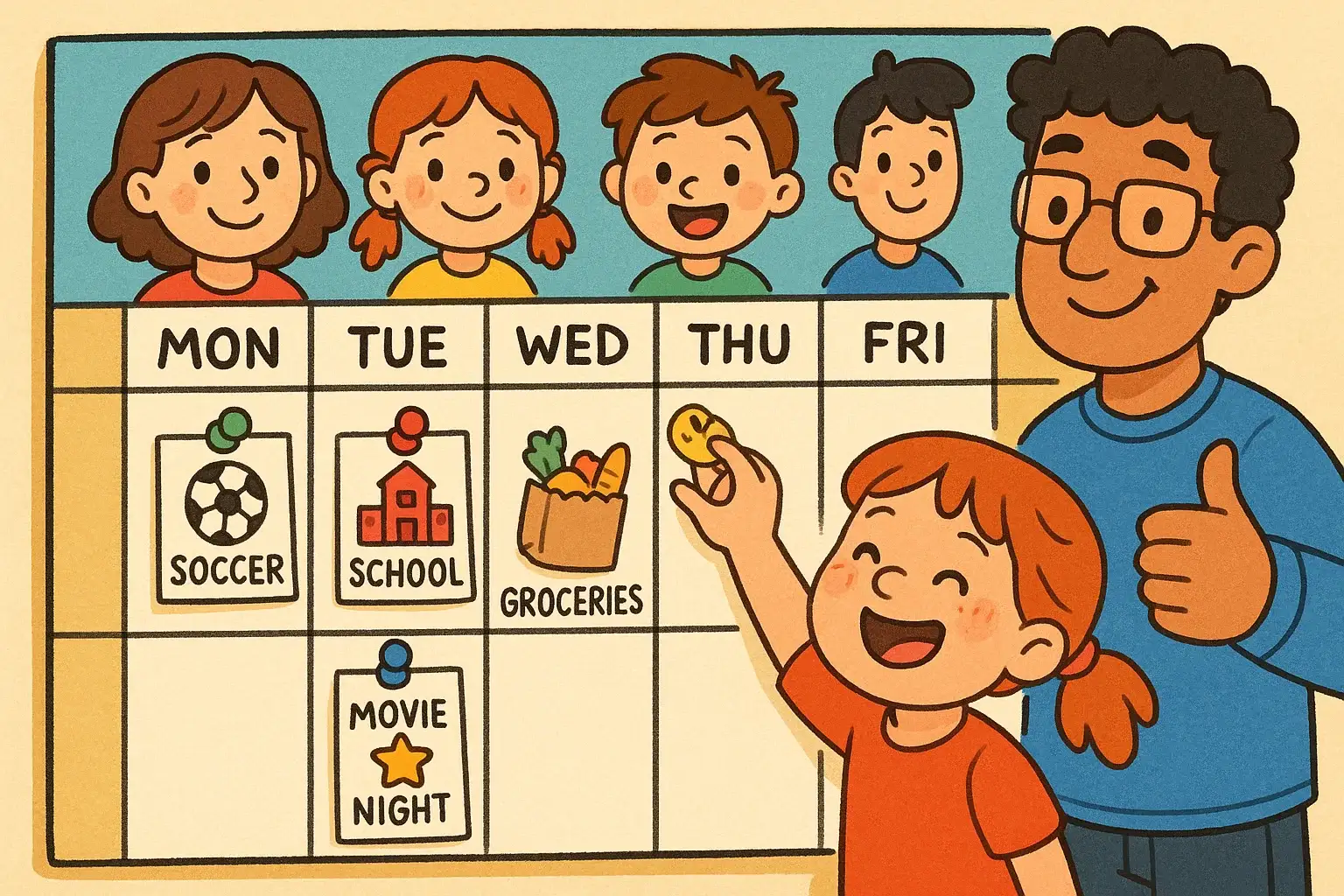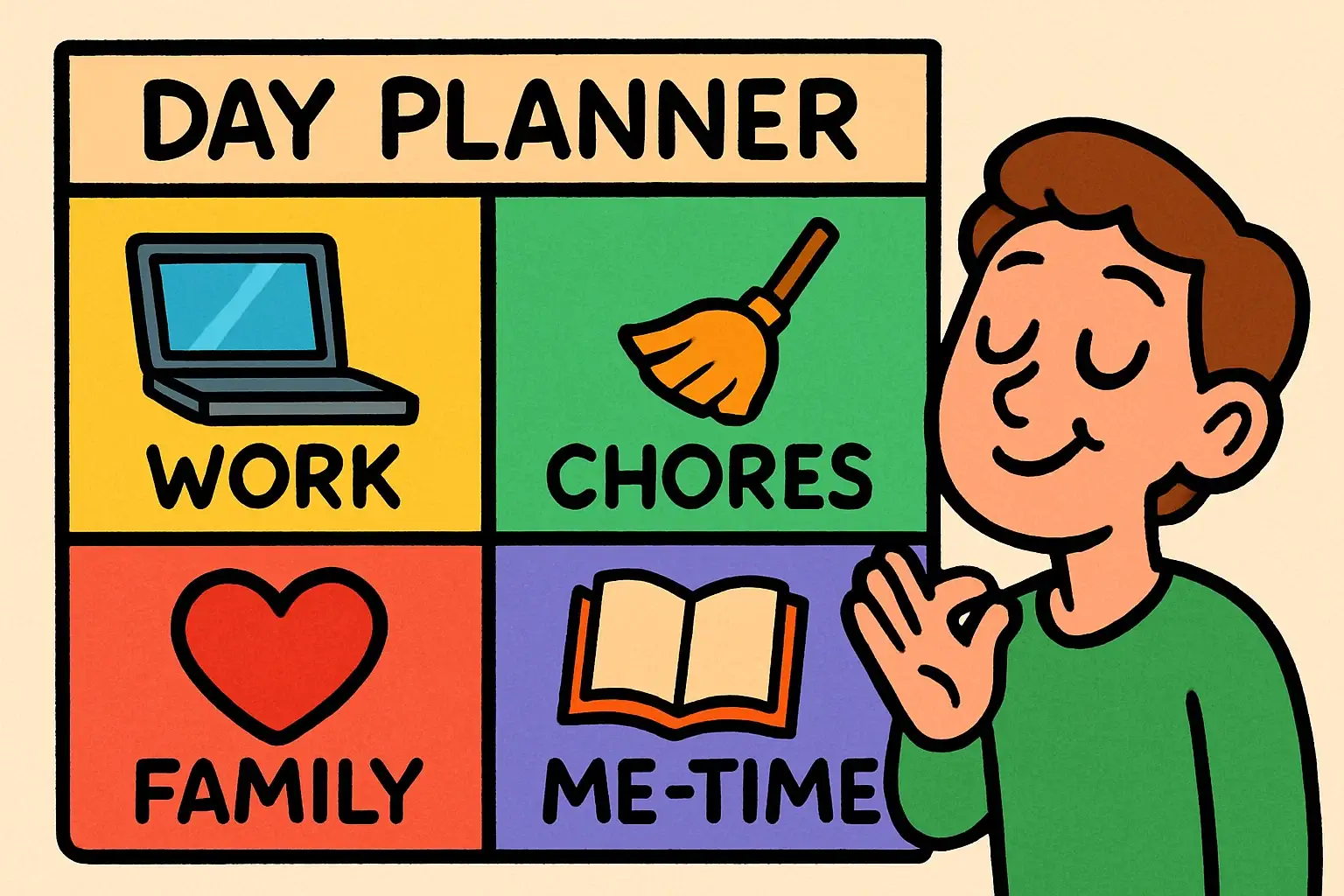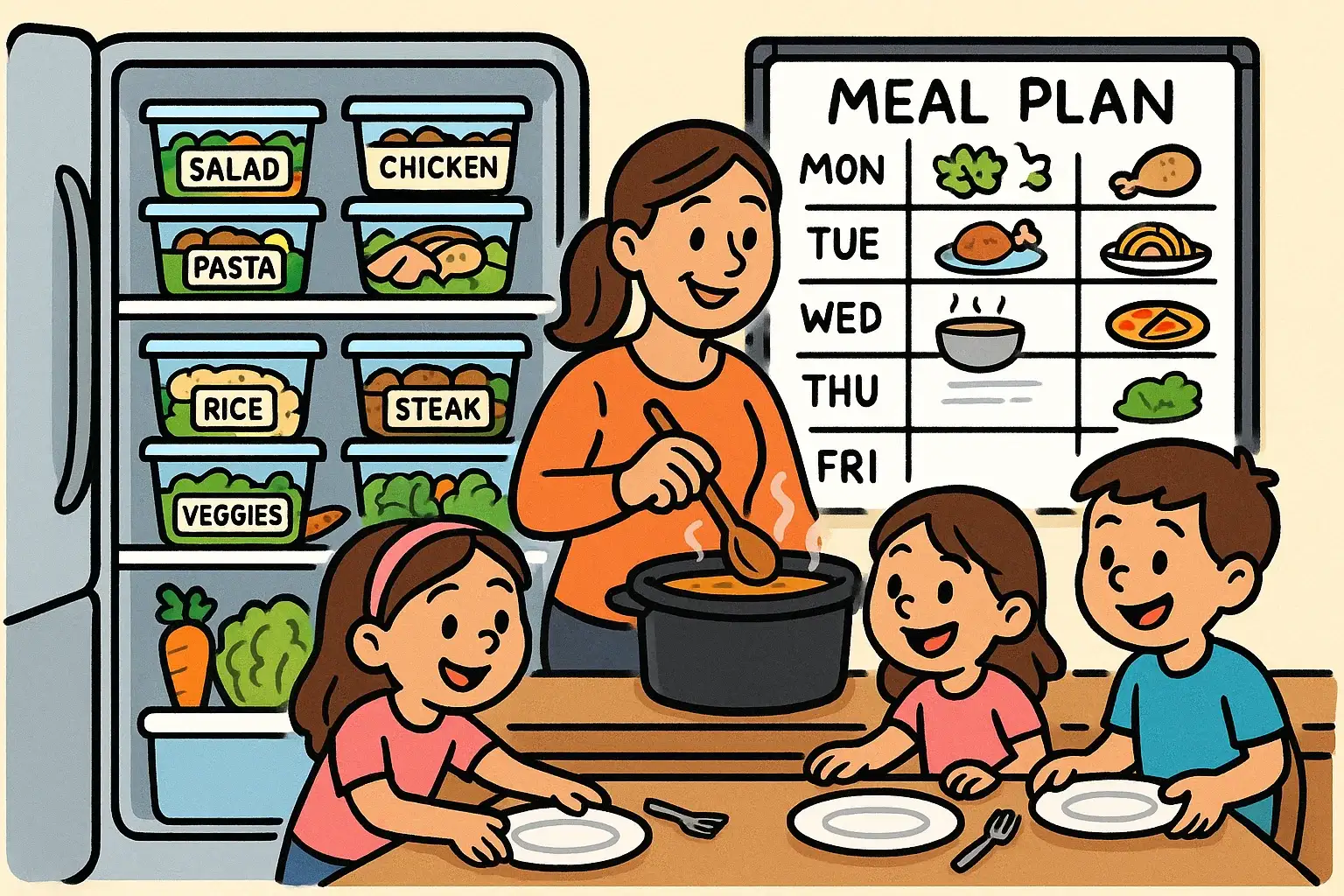Welcome to the ultimate juggling act: modern parenthood. If you’re a busy parent, you know the daily challenge of balancing a career, managing a household, and raising happy, healthy kids. Feeling overwhelmed is common, but it doesn’t have to be your default setting. With the right systems in place, you can navigate the busyness and create more space for what truly matters: quality family time.
“The key is not to prioritize what’s on your schedule, but to schedule your priorities.” — Stephen R. Covey, author of The 7 Habits of Highly Effective People
Time Management Tips for Every Busy Parent Trying to Juggle Family Life
1. Prioritize Ruthlessly to Tame the Daily Busyness
The secret to a less chaotic day isn’t getting more done—it’s getting the right things done. Many parents start their day with a massive to-do list, which can quickly lead to feeling overwhelmed.

Instead, each morning, identify your top three essential tasks. These are the non-negotiables that will make the biggest impact on your day. By focusing on these priorities, you can avoid getting sidetracked by non-urgent distractions. This simple shift helps lower stress and makes the daily juggle of responsibilities feel much more manageable. For any busy mom or dad, learning to prioritize tasks is the first step toward a more controlled daily schedule.
2. Use a Family Calendar to Streamline the Routine

A shared family calendar is a lifesaver for keeping your household running smoothly. Whether you use a digital tool like Google Calendar or a large wall planner, a central hub for all family activities is essential.
- What to track: Appointments, school events, extracurriculars, household chores, and even planned family time.
- Make it a habit: Schedule regular family meetings—even just 15 minutes on a Sunday evening—to sync schedules for the week ahead. This simple routine helps you anticipate busy days, allocate childcare if needed, and avoid last-minute surprises.
3. Embrace Time Blocking and Task Batching to Stay Focused
Time blocking is a powerful technique where you allocate specific blocks of time in your daily schedule for certain types of tasks. For example, you might block out 9-11 am for focused work, 4-5 pm for household chores, and 6-7 pm for tech-free family time.

Combine this with task batching—grouping similar daily tasks together.
- Answer all your emails in one go.
- Run all your errands in a single trip.
- Do all your meal prep for the week on Sunday afternoon.
This approach reduces “context switching,” the mental energy you lose when shifting between different kinds of tasks. It’s one of the most effective time management tips for improving focus and productivity.
4. Delegate Family Responsibilities and Household Chores
Here’s a crucial reminder for every busy parent: you don’t have to do it all. Learning to delegate is key to long-term balance. Effective communication with your spouse or partner is the first step. Discuss how to divide parenting responsibilities and household duties fairly.

Don’t forget to involve the kids! Assigning age-appropriate chores not only lightens your load but also teaches children responsibility and valuable life lessons. A simple chore chart can make this a fun and structured part of the daily routine. When you ask for help, you’re not admitting defeat; you’re building a stronger team.
5. Plan Meals in Advance and Use Simple Cooking Shortcuts
“What’s for dinner?” can be the most dreaded question on a busy day. A weekly meal plan eliminates this daily decision fatigue. Spend an hour on the weekend planning your meals, making a grocery list, and even doing some meal prep.

Time-saving shortcuts:
- Batch cook: Make large portions of staples like rice, chicken, or roasted vegetables.
- Use a slow cooker: Prepare dinner in the morning and come home to a ready-made meal.
- Have go-to recipes: Keep a list of simple, quick meals for extra busy nights.
This strategy saves time, reduces stress, and makes it easier to have family dinners together.
6. Limit Screen Time to Reclaim Quality Family Moments
Digital distractions are silent thieves of time and attention. Endless notifications, social media scrolling, and the lure of the screen can eat into precious time at home and prevent meaningful connections.

To reclaim this time, establish clear boundaries. You could implement tech-free zones (like the dinner table) or tech-free hours (like the first hour after getting home). Doing so creates intentional space for conversation, play, and genuine family bonding. Kids need your focused attention to feel loved and secure, and reducing screen time is a powerful way to provide it.
7. Establish Consistent Routines for a More Predictable Day
Routines are the backbone of a calm and organized family life. When you establish consistent routines, you put recurring decisions on autopilot, freeing up mental energy for more important things.

- Morning Routine: Consistent wake-up times, getting dressed, and eating breakfast in the same order each day.
- Evening Routine: Packing school bags and lunches the night before, a tidy space sweep, and predictable bedtime routines.
These predictable patterns create a sense of security for children and make mornings and evenings less chaotic for everyone.
8. Wake Up a Bit Earlier to Center Yourself First
This might sound like the last thing a tired parent wants to do, but waking up just 20-30 minutes before the rest of the household can be a game-changer. This quiet time is yours alone.

Use it to:
- Enjoy a cup of coffee in silence.
- Stretch or do a quick meditation.
- Review your top 3 priorities for the day.
- Journal your thoughts.
This small shift can give you a crucial head start, allowing you to approach the day with mental clarity and intention rather than reacting to the morning rush.
9. Prioritize Self-Care and Mindfulness Daily
Self-care is not a luxury; it’s a necessity for surviving and thriving in the parenting journey. When you’re constantly juggling work and family, your own well-being can fall to the bottom of the to-do list. But you can’t pour from an empty cup.
Integrate small moments of self-care and mindfulness into your day. This doesn’t mean you need a spa day. It can be as simple as:
- A five-minute breathing exercise to calm stress.
- A short walk around the block on your lunch break.
- Listening to your favorite music while cooking.
These small acts build resilience and help you manage the unique challenges of being a busy parent.
10. Say “No” to Reclaim Your Time and Energy

One of the most powerful time management tools is the word “no.” Many parents, especially moms, feel obligated to say yes to every request, from volunteering at school to attending every social event.
“The best thing to spend on your children is your time.” — Louise Hart, Ed.D., is a psychologist and parenting expert.
Learning to set boundaries by saying “no” is essential. Before committing to something, ask yourself: “Does this align with my family’s priorities? Do I have the energy for this?” It’s okay to decline obligations that will drain your time and disrupt your family’s flow. Saying “no” to the non-essential means you can say “yes” to what truly matters—like unstructured one-on-one time with your kids.
Your Quick Guide: 10 Time Management Tips for Busy Parents
Think of this as your go-to cheat sheet for taming the chaos and bringing more calm into your family life. Here are 10 essential tips you can start using today to streamline your routine and create more space for what truly matters.
- Prioritize Your Top 3 Tasks: Start your day by identifying just three essential goals to stay focused and feel accomplished.
- Use a Shared Family Calendar: Keep everyone’s schedules in one central place to avoid conflicts and stay organized.
- Block and Batch Your Time: Group similar tasks together (like errands or emails) and schedule them in dedicated time blocks to improve efficiency.
- Delegate Responsibilities: Share the load with your partner and give kids age-appropriate chores to build teamwork and lighten your burden.
- Plan Meals for the Week: Decide on dinners ahead of time to eliminate daily stress and make evenings smoother.
- Set Digital Boundaries: Create tech-free zones or hours to protect your family time from the constant distraction of screens.
- Establish Consistent Routines: Create predictable morning and evening habits to make your days run on autopilot and reduce chaos.
- Wake Up a Little Earlier: Carve out 20 minutes for yourself before the household wakes to center yourself and plan your day.
- Practice Micro Self-Care: Integrate small, restorative moments (like a few deep breaths or a short walk) into your busy schedule to maintain your well-being.
- Learn to Say “No”: Protect your energy and family time by politely declining requests that don’t align with your priorities.


